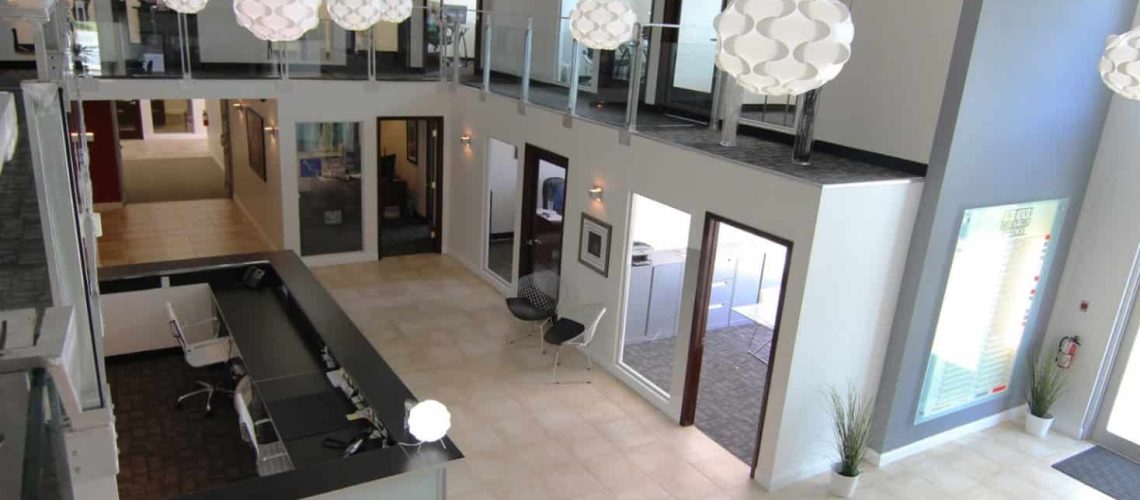Whether you run a work-from-home operation or make your earnings as a freelancer from Cape Coral, Florida, having an office address brings more credibility to your operations while keeping your home address safe from public view.
But seeing that an office location doesn’t come cheap, most WFH employers and freelancers go for more affordable options. Most popularly, these choices come in the form of coworking spaces and virtual offices.
If you have never used these facilities before, it can get a bit complex to choose the right fit for yourself. But it is a fairly simple process if you compare these options side-by-side.
To help you understand the difference between a coworking space and a virtual office here is a direct comparison of both of these modern solutions.
What is a Coworking Space?
As its name suggests, a coworking space is a shared office solution that provides you with a physical working space. Due to being shared with other individuals, it comes at a more affordable price than a traditional office solely rented by yourself.
Typically, a coworking space allows you to work in either a communal or individual setting.
Through different pricing plans, you can choose between the following popular coworking options:
You can rotate desks or office space with other individuals who are renting the space with you. When you are not using the space within specific working hours, it is utilized by someone else.
You can work in a communal setting where you share workstations with other renters. In these programs, you typically don’t have claims on a specific seat. This is also known as hot desking.
You can hold individual executive suites that are only accessed by you or your team. This gives you the most control over your rented location, but it also costs the highest.
In all of these facilities, you have access to shared facilities such as a lobby, kitchen, and break room. Most coworking spaces also offer meeting rooms, which can either be provided within your pricing plan or at an additional cost.
What is a Virtual Office?
A virtual office is quite modern and different in its infrastructure.
Typically, it doesn’t provide you with office space from the get-go. But it offers you a physical address as well as other facilities such as a mail forwarding or call answering service.
These facilities are often located in affluent or popular business areas. Having a prime address allows you to elevate your business profile to clients without paying sky-high lease prices for it.
Almost all modern virtual offices provide you with the following benefits.
Physical address. This helps you receive your mail at the given business address and even confidentially forward it to your personal address.
Local phone number. This contact number helps you receive calls, verify your operations, and forward messages from clients.
Lobby services. This helps you entertain casual meetings or receive important deliveries that can only be handled in-person.
With this, some virtual offices also provide you with the ability to rent meeting rooms or physical workspaces according to your need.
The overall benefits of a virtual office allow you to hold all your business correspondence in a professional setting. They also let you qualify for legal procedures such as business registration, as well as online processes such as Google Maps verification.
Shared Benefits Between the Two Solutions
There is a distinct difference between a coworking space and a virtual office. But both of these solutions also share a few common advantages.
These include:
- Physical address.
- Mail receiving services.
- Reception/lobby services.
- Meeting spaces.
If you choose a reliable provider, you can easily benefit from these aspects within your selected price point.
Advantages Over One Another
Both coworking spaces and virtual offices hold an edge over one another in specific areas.
A Coworking Space is Ideal for Physical Access
Coworking spaces offer you a permanent office location that you can visit and work from on a daily basis. But regardless of whether you are using the physical facility or not, you need to pay for the space that you are renting from the provider. All of it also comes at a much higher price than a virtual office.
A Virtual Office Delivers Optimal Affordability
Virtual offices allow you to work from home while also retaining an office address and phone number for business correspondence. Some providers such as Twelve Twenty Two Executive Suites & e-center also allow you to rent physical working or meeting spaces on an hourly, daily, or weekly basis. The overall service is offered at a price point that is lower than coworking spaces.
What Should You Choose?
A coworking space works for people who don’t have issues in fulfilling a daily commute and who can afford a higher monthly rent for such a facility. If working from home is not an ideal situation for you, then you can opt for a coworking space.
On the other hand, if you don’t want to be rendered out of work when you are unable to visit your rented office, a virtual office is the way to go. It provides you with optimal flexibility, while also letting you enjoy additional facilities when you need them the most.
To see whether you should rent a coworking space or go for a virtual office, contact us to book an appointment today. We will be glad to answer your questions and help you find a solution that fits your needs the best.

